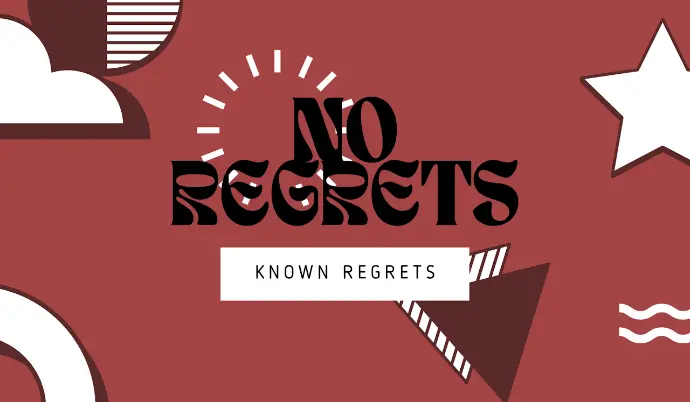Intro
Our brains do their best work when they are connected with other brains. Not like the Borg (for the Star Trek people). It’s not a collective consciousness. But our brains are definitely wired for connection, a process that starts as bonding and attachment which occurs in our earliest days as infants. Strong bonding and attachment gives us a sense of security and belonging leading to confidence to live the lives we have been given. Isolation, on the other hand leaves us with only our own brain to figure things out and tends to open the door to decisions which can ultimately lead to regret.
My Thoughts
An ancient Jewish proverb says:
“There is a way that seems right to a man, but in the end it leads to death.”
Kind of dramatic, but think of death not so much about physical death but as the death of hopes and desires and expectations. Which takes us back to last week:
Every regret started as a good idea.
How do we know if our ideas are good, or just seem good? It seems like the right thing to do, but is it? One of the strategies we can access through our relationships with other people is a use of additional brain power and experience to help assess our many “good” ideas. Never make an important decision alone. Here are a couple of thoughts.
Important decisions often involve strong emotions. Other people who care about us have less emotion invested in our decisions than we do. As a result, they can often see things we can’t see and anticipate things we might not anticipate. And if you have a good relationship with someone, they will ask better questions and even call you out if needed. Run your important decisions through others.
Among those others are your good friends. This is kind of an odd thing but as much as our brains are wired to keep us safe, other people often care about us more than we do when it comes to important decisions. Just like you don’t want your good friends to get hurt and would talk them out of doing something that could lead to them getting hurt, so will they do for you. One caveat: don’t run decisions through friends who are involved in the decision you are going to make. Taking that expensive trip to Europe with your friends may be a good idea, but don’t ask your friends who have already decided to go!
Wisdom can be gained in one of two basic ways. You can get wisdom the hard way, through learning as a result of the consequences (regrets) of your “good ideas.” Or you can borrow the experience of others. These others are the older people in your life. Have adults in your life,whether parents or other relatives, teachers, coaches, youth group leaders, who you can share important decisions with. Benefit from their “if i would have only known then” experiences. They would love to spare you their regrets and will gladly share with you what they learned the hard way so you don’t have to learn it the hard way.
Conclusion
Summary? You just ain’t that smart! You have many, many good ideas. Some will benefit you greatly. Some will turn into regrets. You will have more of the former if you use the connecting with others part of your brain to look at the decisions you make through many sets of eyes.
